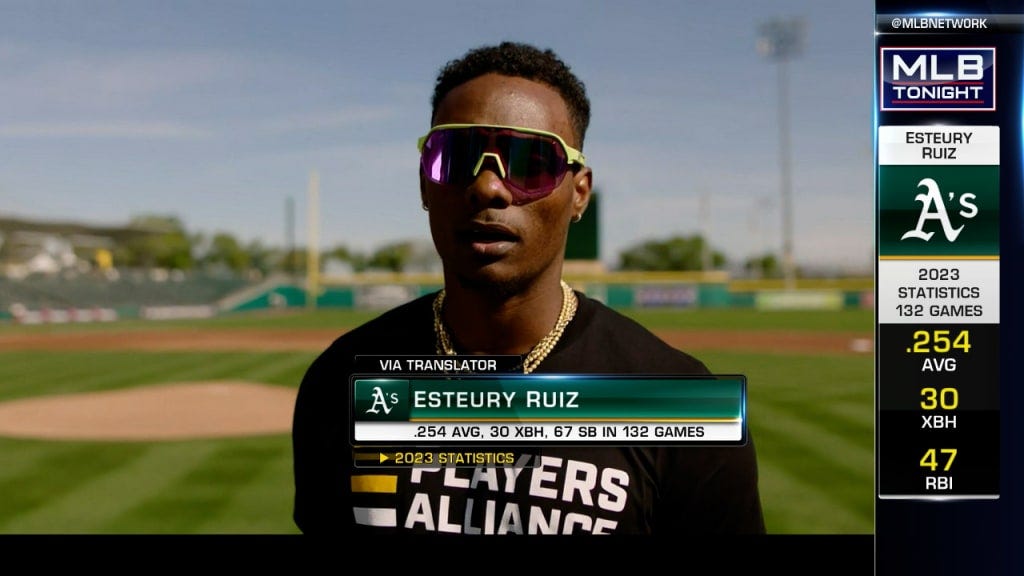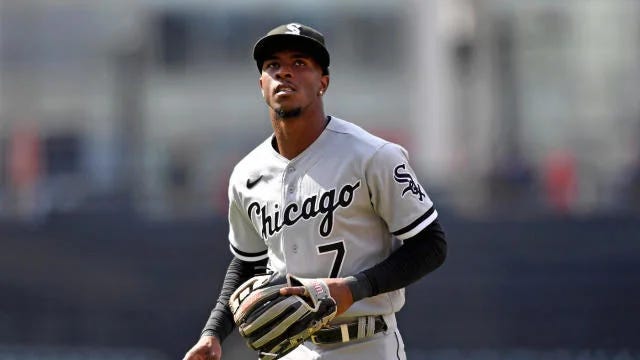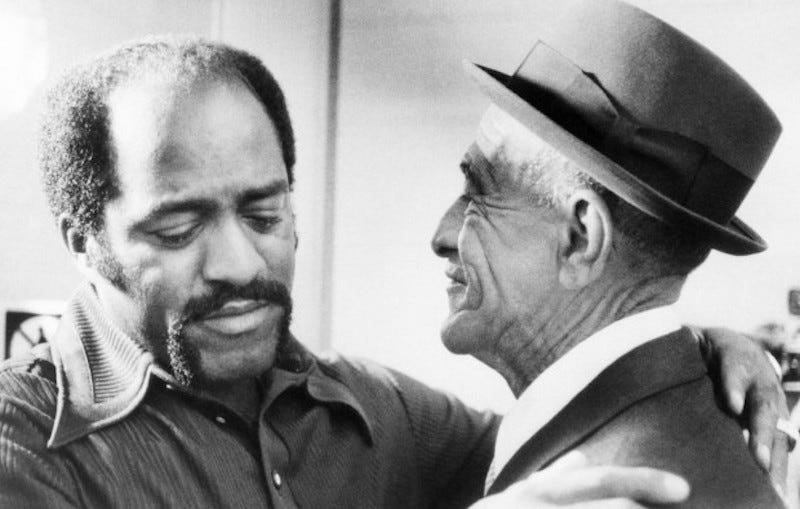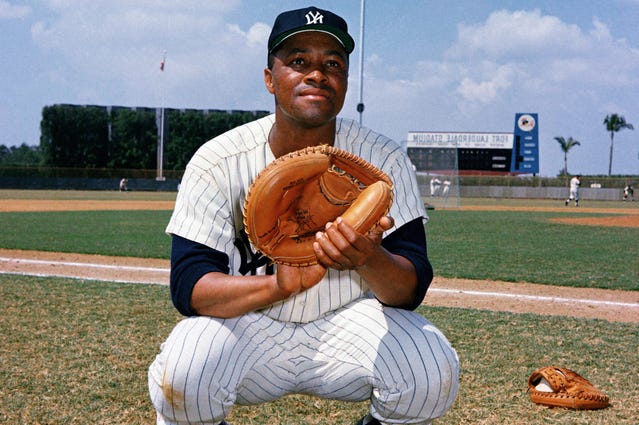The Show Notes #8: Black Baseball's Conundrums With Race, Ethnicity, & Nationality
The eighth edition of The Show Notes addresses a persistent topic that has given white supremacism, ahistorical notions, and revisionist narratives a foothold within Black Baseball culture.
I. Ignoring Afro-Latino Players Must Cease
Many individuals who make a living writing about Black Baseball will acknowledge the Blackness of players from the Anglophone areas of the Caribbean but will flat-out ignore the Blackness of outspoken players from the regions of the Caribbean and Latin America where other languages are spoken, even when they go out of their way to claim their Blackness in English.
Minnie Miñoso, Roberto Clemente, Rod Carew, Orlando Cepeda, Carlos Delgado, Manny Sanguillén, and many other notable Black players from different countries across Latin America and the Caribbean have claimed their Blackness on record. Francisco Lindor, Nasim Nuñez, George Valera, and Esteury Ruiz are four active Afro-Latino players in MiLB/MLB who have claimed their Blackness on record.
“No way anyone is going to tell me I don’t belong there, that I’m not Black when I was treated like one. They’re going to come out and tell me I’m not black? What am I? Chinese? I don’t care what color you are. I don’t [care] where you’re coming from or what kind of language you speak. It doesn’t matter to me. The book is a disgrace. … How about Ferguson Jenkins? He wasn’t born here. He’s a Canadian.” - Luis Tiant III
Outspoken Afro-Cuban, second-generation major leaguer, and three-time All-Star Luis Tiant III brought up the erasure of Black baseball players from Latin America when James “Mudcat” Grant published a book titled “Black Aces” celebrating Black pitchers who have won 20 games in MLB. Grant’s book only featured African-American pitchers, and three-time 20-game winner Tiant III took great exception that he and other Black pitchers from Latin America were excluded. An article published by The Hartford Courant in September 2005 focused on Tiant III’s reaction to the omission of Afro-Latino pitchers who have won 20 games such as Juan Marichal and Pedro Martinez from Grant’s book.
This instance is just one of many where Afro-Latinos in baseball who were outspoken about being acknowledged as Black and Latino were outright ignored. For Black Baseball to reach its true potential, it must stop operating with an American-centric viewpoint. Not officially recognizing an Afro-Latino demographic is one of the biggest issues related to the subject of diversity in MLB and the fact that it goes completely unspoken encapsulates the issue.
II. The Hunter-Jenkins Paradox
Torii Hunter’s comments about Black players from Latin America being imposters are extremely insulting to Black history inside and outside of the sport of baseball. Many within Black Baseball lean on the incorrect notion that there are no Black people in Central and South America. These same people often misconstrue the concepts of race, nationality, and ethnicity, whether inadvertently or willingly.
Cy Young Award winner, Black Ace, and Hall of Famer Fergie Jenkins is the greatest baseball player in Canada’s history. He was raised in the Chatham-Kent municipality, an area of Southwestern Ontario where Black people assembled during the late 1800s and early 1900s. While it is well known that Jenkins is a descendant of African-American slaves who used the Underground Railroad to escape from the Southern United States to Canada through his mother’s family, many do not know that he is Barbadian on his father’s side.
Most of the people reading this would never question Jenkins’s Blackness but if I told you all Fernando Rodney was Black, that very same majority would disagree. Rodney belongs to an ethnic enclave known as Samaná-Americans, descendants of a group of African-Americans from the Philadelphia, Pennsylvania area who were deported to the island of Hispaniola during the mid-1820s while it was still entirely under the authority of Haiti. Most of these individuals congregated on the Samaná Peninsula, located on the Northeastern sector of the island.
During the late 1700s and early 1800s, the American government had multiple deportation programs set up to send free African-Americans to the Caribbean, Latin America, and Africa. The Samaná-American ethnic group makes up the largest English-speaking population on the island of Hispaniola. It has its creole/patois which is a mixture of Spanish and Ebonics known as Samaná English. There are approximately 6,000 Samaná-Americans currently.
Samaná-Americans are not the only Black Anglophone contingent in Latin America with a rich baseball culture. The Jamaican-Nicaraguan baseball culture that has existed on the Mosquito Coast since the early 1900s is another one of Black Baseball’s hidden gems. The Red Black Green Baseball Blog covered two of the most prominent baseball players to emerge from the Mosquito Coast in The Third Notable Black Baseball Families article.
Jamaican-Nicaraguan players to reach MLB include Marvin Bernard, David Green, Cheslor Cuthbert, Devern Hancock, and Albert Williams. 21-year-old pitcher Duque Hebbert is the latest product of the Jamaican-Nicaraguan baseball pipeline. He struck out Juan Soto, Rafael Devers, and Julio Rodriguez during Nicaragua’s match against the Dominican Republic in the 2023 World Baseball Classic. This relief appearance turned the heads of everyone throughout the realms of baseball, and the Detroit Tigers signed the 5’10’’ pitcher to a minor league deal for an unknown amount a short time after his performance.
Conclusion
For every Rico Carty and Sammy Sosa there is a Roberto Clemente and Manny Sanguillén. If Black Baseball culture in the United States wants to move forward on the right side of sports history, it must acknowledge its Afro-Latino group’s past, present, and future contributions. The fact that observing African-American baseball history down to the minute detail while purposely erasing and ignoring the rest of the African diaspora’s contributions to the sport is acceptable to many who attach themselves to Black Baseball culture and history is an attestment to the dire state of Black Baseball. It is very safe to say that Black Baseball is currently in the midst of its nadir and there is major work to be done in order to return the culture to its former glory.






